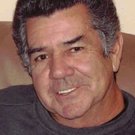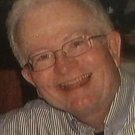Chief George Pratt, Altamont’s cowboy, dies at 94
ALTAMONT — George Pratt wore a stetson hat and cowboy boots that made his lean frame seem even taller. In his old age, he worked as a cowboy on the Florida range after retiring from a 20-year career as Altamont’s police chief.
He died on Monday, April 3, 2023 at his Altamont home, which he fondly referred to as a log cabin. He was 94.
For Mr. Pratt, the cowboy’s life embodied a personal credo of overcoming hardship and participating in the arena of life.
He was born in Cambridge, New York on Aug. 23, 1928 to the late George and Mary Lang-Pratt.
His early life was not an easy one. “My father was dead. My mother raised us,” he said of himself and his two siblings.
“I was an adult when I was 7,” Mr. Pratt said in a 2018 Enterprise podcast. “I was milking cows, driving a team of horses, and farming.”
Raised in Schuylerville, Mr. Pratt grew up with a sense of the importance of Saratoga County history.
“As kids, we used to chase through the rooms in General Philip Schuyler’s house,” he said. “Fortunately, we learned to respect local history in school.”
Mr. Pratt had saved some of his papers from his elementary-school days in which he wrote his letters with a deliberate and purposeful hand.
“I worked on a farm and, when I turned 14, I worked nights, from 3 to 11, at a wallpaper mill,” Mr. Pratt said.
He joined the State Guard at age 15. “My mother was in the hospital at the time and she didn’t realize the paper she was signing,” he said of his early admittance to the military.
In 1944, he joined the Navy; he served in the Navy until 1953. Mr. Pratt served on five different ships: an aircraft carrier, two cruisers, a destroyer, and a troop transport ship that landed the first Marines in North Korea.
Mr. Pratt told students who gathered at Altamont’s Home Front Café to learn about World War II, “Our country can’t afford fools and cowards.”
He looked back on his long life with satisfaction.
“Back when I was a kid, everybody wanted to be a cop, a private eye, a cowboy, or a fireman,” he said. “I was lucky. I got to be them all.”
After he left the Navy, Mr. Pratt became an investigator for an insurance company where he made good money. That job taught him that the “real answer” to a question during an interrogation came not from what the person said but from their body language.
The real answer is not given verbally, but physically, he said. “The eyes, the expression, the hand movement, the body movement, the physical, emotional reaction to a question is more of a truthful answer than the verbal,” Mr. Pratt said.
When his first wife died, he re-evaluated his life, Mr. Pratt said.
He was serving as an Altamont trustee at the time, he recalled, and the longtime police chief, Howard Diehl, was getting ready to retire.
“I had no dependents,” said Mr. Pratt. “I went to Bill Aylward who was the mayor at the time and asked about the job.” Mr Pratt was told he’d have to go to school again. He did.
“I accepted the job at a much-reduced income — $8,000 or $9,000,” he said. He also volunteered as a firefighter.
He worked as Altamont’s police chief from 1972 till his retirement in 1992. Mr. Pratt once said that crime didn’t happen in Altamont because he wouldn’t permit it.
But in 1990, the village suffered what Mr. Pratt said was the first murder in its 100-year history when a newcomer to the village was stabbed to death in her Altamont Boulevard home.
In 2018, Mr. Pratt said that several of Altamont’s successful businessmen had been “hell on wheels” in their youth and, in their later years, had told him, “If it weren’t for me, they’d be convicted felons.”
He also said of his 20-year tenure as chief, “I was a cop 24 hours a day. They would call me at home at night if they needed me. And it was accepted. It was just part of the thing.”
A decade after retiring, Mr. Pratt worked again for the Altamont police as a horse-mounted part-time officer and was a frequent presence on village streets for garage-sale or holiday gatherings or at the fairgrounds.
“One man on a horse, as an observer in a parking lot, can do a lot more than five men on the ground,” Mr. Pratt said at the time.
Genevieve Staub, a village resident, said at the time, “He was a comfort, he really was, to have around.” She said, back when he was chief, he would cover “a little bit” for local teens like her daughters while setting them straight.
“His heart is as big as his body …,” she said. “He’s a man 10 feet tall. We really do need him.”
Mr. Pratt said he decided to retire because he met a nationally recognized rodeo rider, Matt Condo, who was also a Florida rancher, in a bar one night and was offered a job.
“He is now deceased,” Mr. Pratt said in 2018 of Mr. Condo. “He got killed getting thrown off his horse.”
Mr. Pratt said he loved the work at the Blue Head Ranch. “You’re continually moving. You’re in the saddle from dawn to dusk,” he said at age 90.
With his own body, Mr. Pratt said, he followed the physics principle: A body in motion stays in motion.
“My wife said I went from playing cops and robbers to playing cowboys and Indians,” Mr. Pratt said with a hearty laugh.
Mr. Pratt spent four months of each year, from January to April, in Florida, working as a cowboy. “It’s a way of life that’s hard and dangerous,” he said.
Asked why he liked it, Mr. Pratt paused for a long time and said, “A friend of mine said, if I got along with humans the way I get along with horses, I’d be a good person.”
Over the decades, Mr. Pratt wrote scores of letters to the Enterprise editor, often inspiring editorials in opposition to them.
He enjoyed coming to the newsroom to debate issues both political and personal.
In 2006, Mr. Pratt produced a bittersweet documentary, “Cowboys of Florida,” that captured the essence of a disappearing way of life. The film, directed by Victor Milt, was selected from among 350 international submissions to be one of 10 finalists that year in the documentary category for the Palm Beach Film Festival.
Riding the range is real and so are the lessons learned there, Mr. Pratt said.
Mr. Pratt is among the cowboys portrayed in his film. He talks about how it has stayed the same over the years — the rope hasn’t changed, the saddle hasn’t changed, the horse hasn’t changed.
He says you hear about ATVs herding cattle and, sitting astride his horse, Mr. Pratt concludes, “That’s a crock — you ever see an ATV swim a river?”
“I hate to see it end,” Mr. Pratt told The Enterprise of the cowboys’ way of life, saying it doesn’t bode well for the future of America.
He referenced a favorite quote, spoken in 1910 by Theodore Roosevelt, the Rough Rider who became president: “It is not the critic who counts: not the man who points out how the strong man stumbles or where the doer of deeds could have done better. The credit belongs to the man who is actually in the arena, whose face is marred by dust and sweat and blood, who strives valiantly, who errs and comes up short again and again, because there is no effort without error or shortcoming ….”
When The Enterprise interviewed Mr. Pratt about his movie in 2006, he held out his hand to show a splinted finger. “The last day I rode,” he said, “my horse pitched me off. That’s why I have a broken finger.” He also had a cracked rib and a pulled muscle in his back.
“You get back on your horse,” he said.
****
George P. Pratt is survived by his sister, Joan Gailor, of Saratoga, and by several nieces and nephews. He is also survived by his stepsons, Bob (Deb), Michael, and Randy, and by his goddaughters, DeeDee (Scott) and Andi.
His beloved wife, Faith Pratt, died in 2021.
Family and friends are invited to visit with George Pratt’s family on Thursday, April 6, from 3 to 6 p.m. at the Fredendall Funeral Home in Altamont. A private inurnment in Gerald B.H. Solomon Saratoga National Cemetery will follow later.


